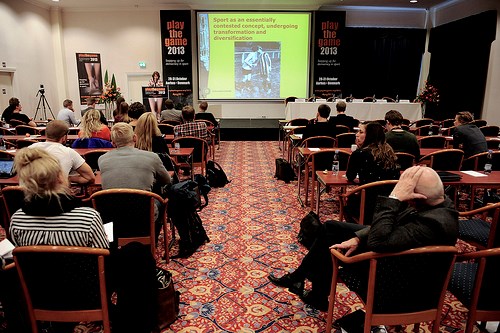Sports clubs stand in the way of their own members
Tuesday's session on rethinking sports participation presented cases from Denmark and the Netherlands, countries often heralded for a high sports participation.But challenges to organised clubs, particularly when it comes to children and teenage members, are evident
"If winning is everything, the loser is nothing. And who wants to be a nothing, certainly not the kids. It’s tough to change the culture. The first thing we should do is to listen to the kids," Bordinggaard said.
However, the loudest voices in children’s sports clubs often belong to the most engaged parents and coaches who are eagerly ambitious on behalf of their children.
The global medal race and focus on performance in professional sport spill into amateur sport and dominate club culture, argued Dutch social researcher Inge Claringbould giving an example of a female coach’s discussion with a male co-coach.
"The main issue was that she tended to value equality above winning. The dominant culture of winning leaves little space for critical reflection. If we really want sport to be pleasurable and for all, we need a critical reflection on the reproduction, consequences and contestation of the culture of winning," she said in her presentation.
"Most coaches are rather enthusiastic."
Organised sport is aware of the problem
Sports organisations are all but unaware of the problem of teenage drop-out rates and the particular challenge of accommodating children at both ends of the talent scale.
The change in attitude has to take place at grassroots level in the many local voluntary clubs that engage a majority of children in Denmark and the Netherlands.
In this context, sports organisations can only do so much to encourage a more inclusive club atmosphere. But one way to create space for the less talented or ambitious children might actually be to argue that a wider appeal also creates a larger talent mass.
"When we work with the clubs, there is a lot of conservatism, but one of the key drivers of change is telling them that if they do change, they will get more talents and better players. So it’s not just for fun," said Troels Rasmussen, who is a board member of the Danish Gymnastics and Sports Associations (DGI), organising and advising more than 6,000 local clubs.






